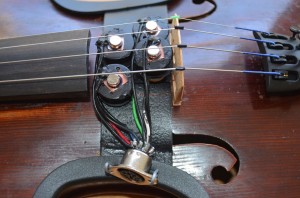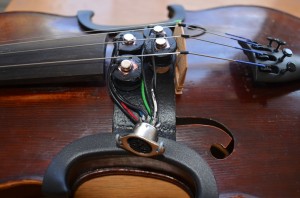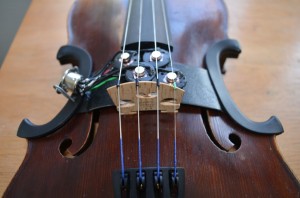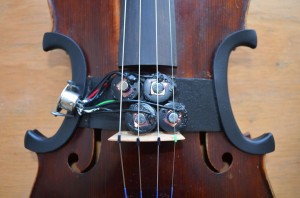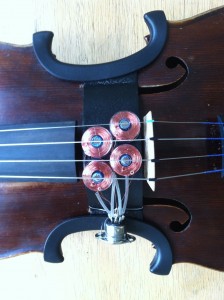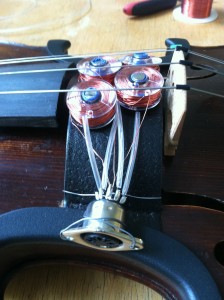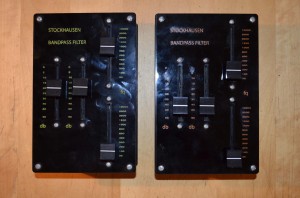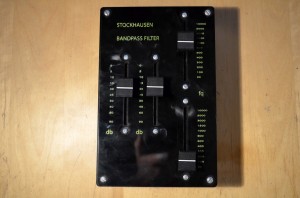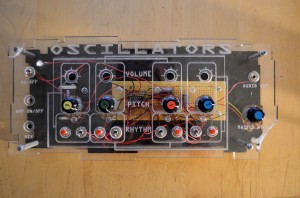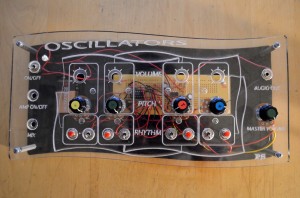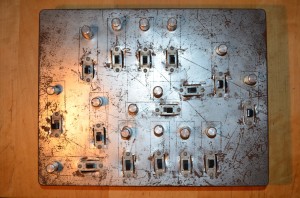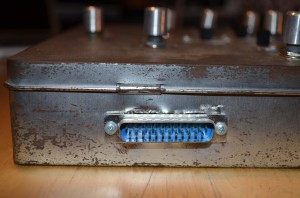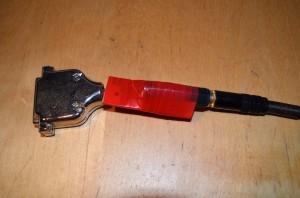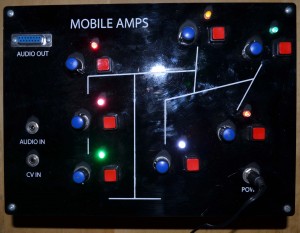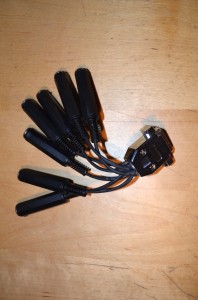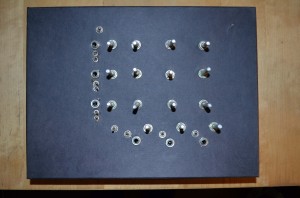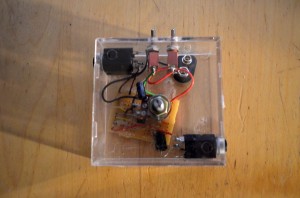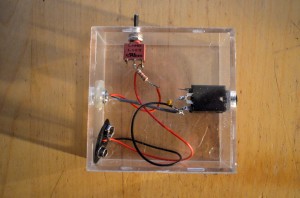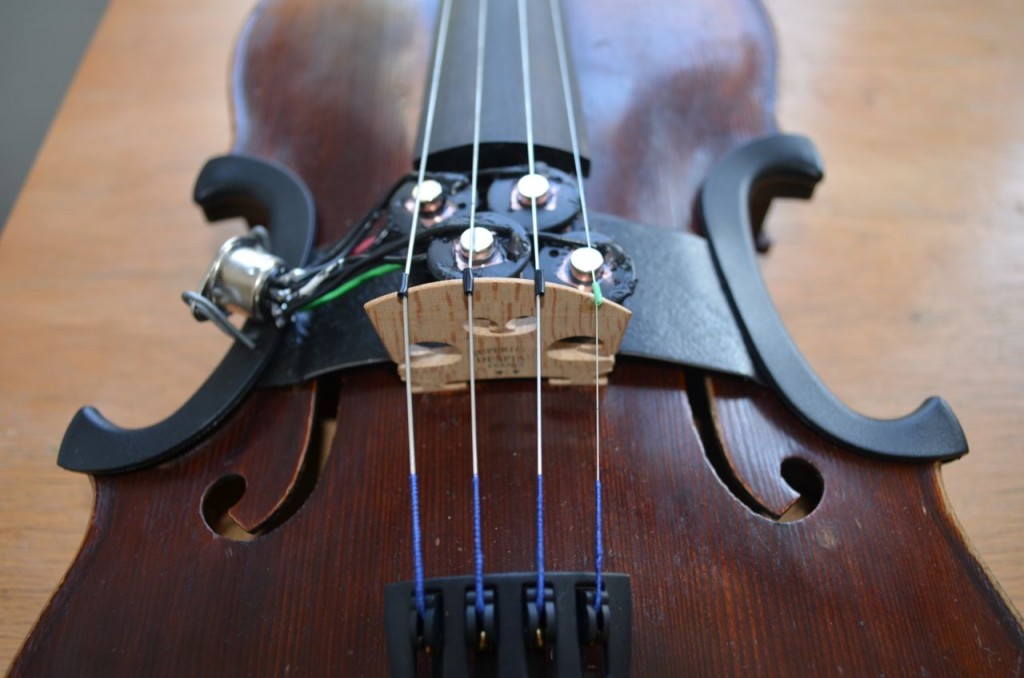
4-channel violin pick-up
This device features four hand wound electromagnetic coils that allow me to output each violin string on a separate channel. Interfacing the device with a computer allows me to provide the player with a different combination of effects on each string. The g-string could be heavily distorted while the d-string sounds through a spacious reverb, yet there is ring-mod on the a-string, etc. The pick-up also allows me to do extremely interesting spatializations with the violin’s sound. Imagine the performer playing a double-stop glissando which begins in one corner of a quadraphonic setup. Now imagine the sound from the two different strings beginning to move in opposite directions!
Listen to the music it can make –
Version 3.0
This model features coils wound with – nearly impossible to handle – 46 AWG magnet wire and much stronger magnets than the previous versions. These features combine to provide a stronger signal with less noise.
Version 2.0
Stockhausen Bandpass Filters
Stockhausen composed a number of pieces, including Mikrophonie I, for a pair of analog bandpass filters. The way he notated performance instructions for the operators of these devices was intimately linked to the physical layout of the filter itself. My filters (or filter interfaces) mimic the original layout of the analog devices but update the technology. These filters route four slide pots to an Arduino which can then be linked to a computer via USB and used to control the filter parameters of Max/MSP patch. Maintaining the layout of the original filters allows for easy execution of his idiosyncratic notation; bringing the technology into the digital realm, allows for easier signal routing with modern audio hardware.
Oscillator Banks
My set of four oscillator banks each features 4 square wave oscillators. I composed a set of Oscillator Etudes for these instruments which you can listen on my Music page. However, I also use these instruments in improvised settings. Each oscillator can be activated by a switch for sustain or a pushbutton for executing rhythmic patterns. Despite the simplicity of the sounds and circuit design, the range of sounds that come from these instruments continue to surprise me.
Gated Oscillators
This bank of 15 gated square wave oscillators serves as the viewer interface for my mobile #2. However, after completing this piece, I created a DB-25 to 1/4″ adapter which allows me to interface this instrument with a mixing board. It has become an integral part of my improv rig.
Mobile Amps
This bank of 7 amplifiers allows me to interface my voltage controlled Euro-rack synth gear with my piece Complete Fragments (listen and view photos under Mobiles). When this device receives a control voltage, it randomly selects an amplifier to power. Amplifiers can also be manually activated with a pushbutton. A DB-15 to 7 x 1/4″ adapter allows me to interface this device with other speaker arrays for spatially dispersed performances.
Early Projects
My earliest experiments with couture electronics included simple electret microphones, amplifiers and even a matrixed mixer complete with pre and post amplifiers.
